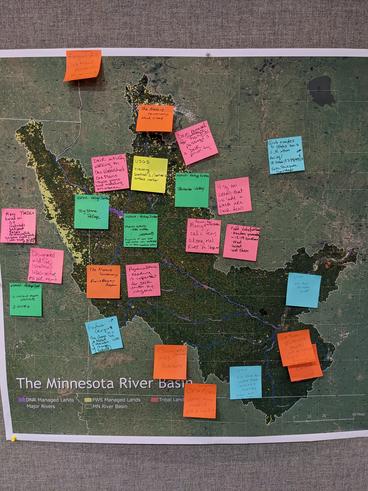
The following are adaptation strategies included in the Midwest Climate Adaptation Science Center's 2023-2026 Science Agenda.
- 1.7. Identify and evaluate management strategies to prepare refuges and parks for extreme rainfall and flooding.
- 1.8. Identify, design, and evaluate management interventions to maintain ecological integrity and ecosystem services under future precipitation patterns.
- 1.10. Identify and evaluate methods to reduce the effects of drought on fish, wildlife, and ecosystems.
- 2.7. Identify management strategies to facilitate small-scale (e.g., microclimate), short-term, or long-term refugia.
- 3.10. Identify and evaluate management strategies to reduce risk and impacts from climate to particularly manoomin/psin/wild rice.
- 5.3. Conduct assessments to reduce the risks and measure the effectiveness of assisted migration activities.
- 5.5. Determine perceptions of and acceptance for climate adaptation for fish, wildlife, and ecosystems, including by private landowners and Indigenous communities.
- 5.7. Identify climate adaptation practices for fish, wildlife, and ecosystems that yield co-benefits (e.g., carbon mitigation, economic gain, social resilience, well-being of at-risk communities).
- 5.8. Inform the design of monitoring programs and early warning systems to detect and respond to climate change.
- 5.9. Identify barriers to and opportunities for the integration of climate adaptation in existing natural resource policies, program, and practices.
Read the full Science Agenda.
